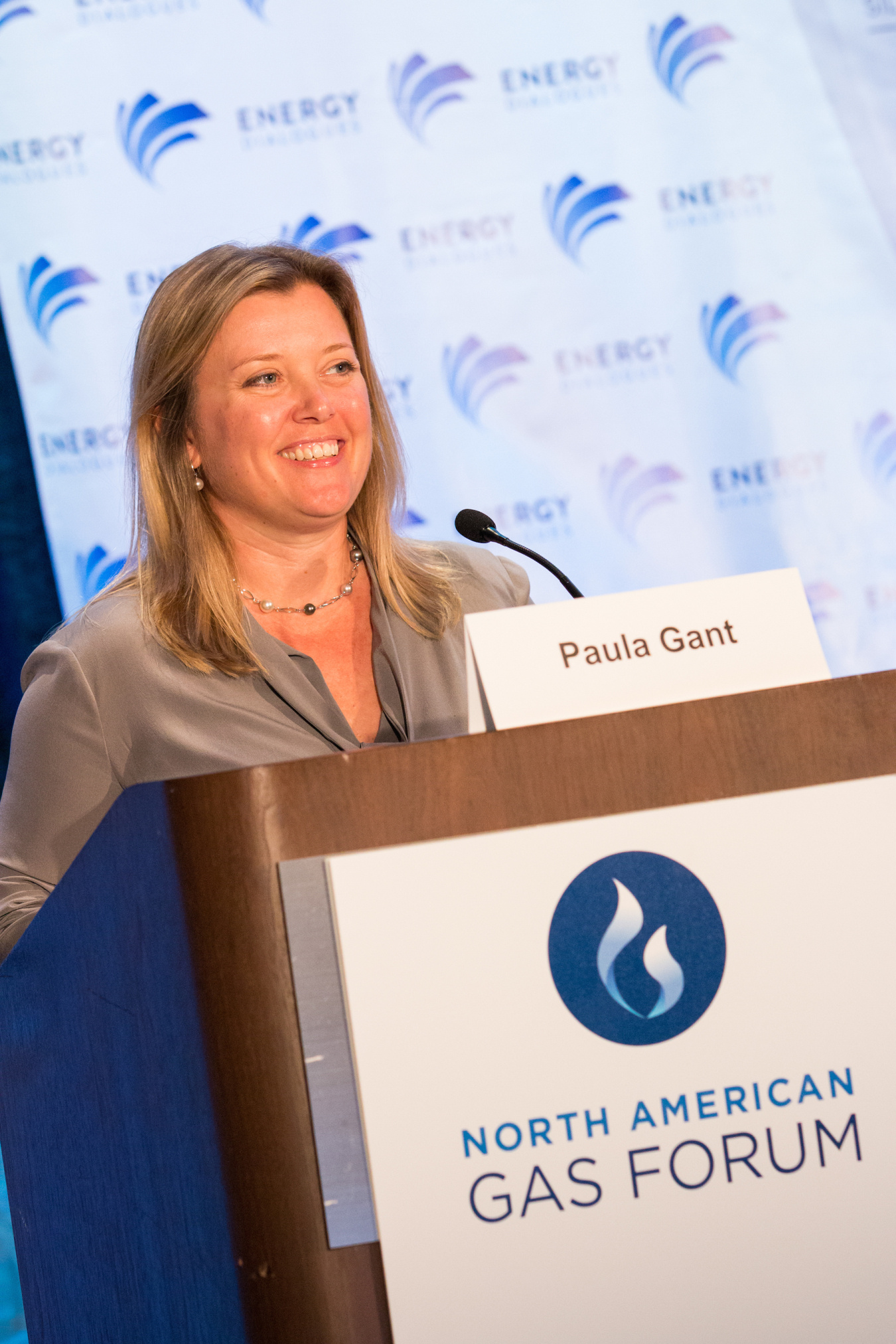This is Profiles in Leadership, a series of interviews with senior executives in the Office of Fossil Energy (FE). In this edition we talk to Paula Gant, Deputy Secretary for Oil and Gas
Office of Fossil Energy and Carbon Management
August 26, 2015
This is Profiles in Leadership, a series of interviews with senior executives in the Office of Fossil Energy (FE). In this edition we talk to Paula Gant, Deputy Secretary for Oil and Gas.
What do you do in your role in the Office of Fossil Energy?
Oh no, a trick question! In this office, we develop the scientific and applied research that helps ensure the nation has abundant and secure energy supplies for the long term. I am very excited about what this team contributes on behalf of the country. Technology generates progress; energy powers our quality of life and technology provides for the advances that propel our standard of living. Investments by this office have contributed to that, starting back in the late 1970s in the work this office did with George Mitchell (called “the father of hydrologic fracturing”) to access the shale resource and going up to the work underway now on methane hydrates.
These early investments opened the pathway to the abundance of domestic natural gas and oil we are seeing now. The U.S. is now the global leader in production of natural gas. This sea change is enhancing our economic growth and national security and delivering. To ensure the national realizes the full promise presented by this abundance the public must have confidence that these resources will be produced responsibly – in a manner that safeguards our air, water and local communities. Our program focuses on the scientific research and technology development necessary to ensure that confidence.
What is the most exciting thing on the horizon for fossil fuels and its technologies?
Methane hydrates in deep water. The geopolitical implications of having this prevalent and clean energy resource available for decades to come is tremendously exciting. We’re working now on the potential for that resource to be commercial in 2040.
I grew up in southern Louisiana, very familiar with oil and the role it plays in our lives; I also remember waiting in line with my father to buy gas in the early 1970s. Because of the work being done in this office, I am confident my son will never experience scarcity like that. And it’s not just natural gas, it’s energy efficiency and renewable energy—it’s truly an “all of the above” approach to meeting our nation’s energy needs. The work of this office is a vital part of that.
The psychological shift from a mindset of scarcity to one of abundance is profound. Learning to ask new questions based on abundance, questions we’ve never been able to ask, is a fascinating process.
What is the one thing you would most like to tell the world about FE?
The original work of applying horizontal drilling and hydrologic fracturing to shale rock was done by this office in 1978, and George Mitchell was a partner; he took this work, applied and refined it over decades, and that’s led to the incredible abundance of natural gas and oil we’re seeing today. That directly resulted from DOE’s research efforts. And that is a perfect example of the role of government. We should be in that pre-commercial space, performing the basic science to inform operational understanding, and then the handoff happens.
We are all in this together. We all want to see this incredibly valuable resource produced for the benefit of our country, and we want to see our air, land and water protected. How can we bring sound science to bear and inform the conversation? How do we make sure we can get all those things? Relentless application of ingenuity and technological know-how is what we do.
Tell us something about yourself that isn't on the corporate bio.
I love to cook Mexican food! And I lived in Peru at one point where I learned to love Peruvian food as well. Yes, I am total foodie.

